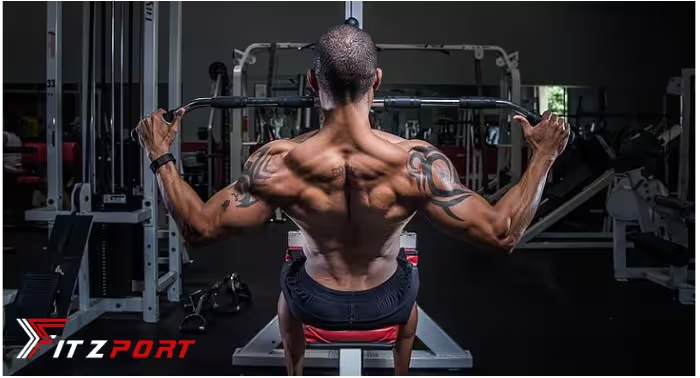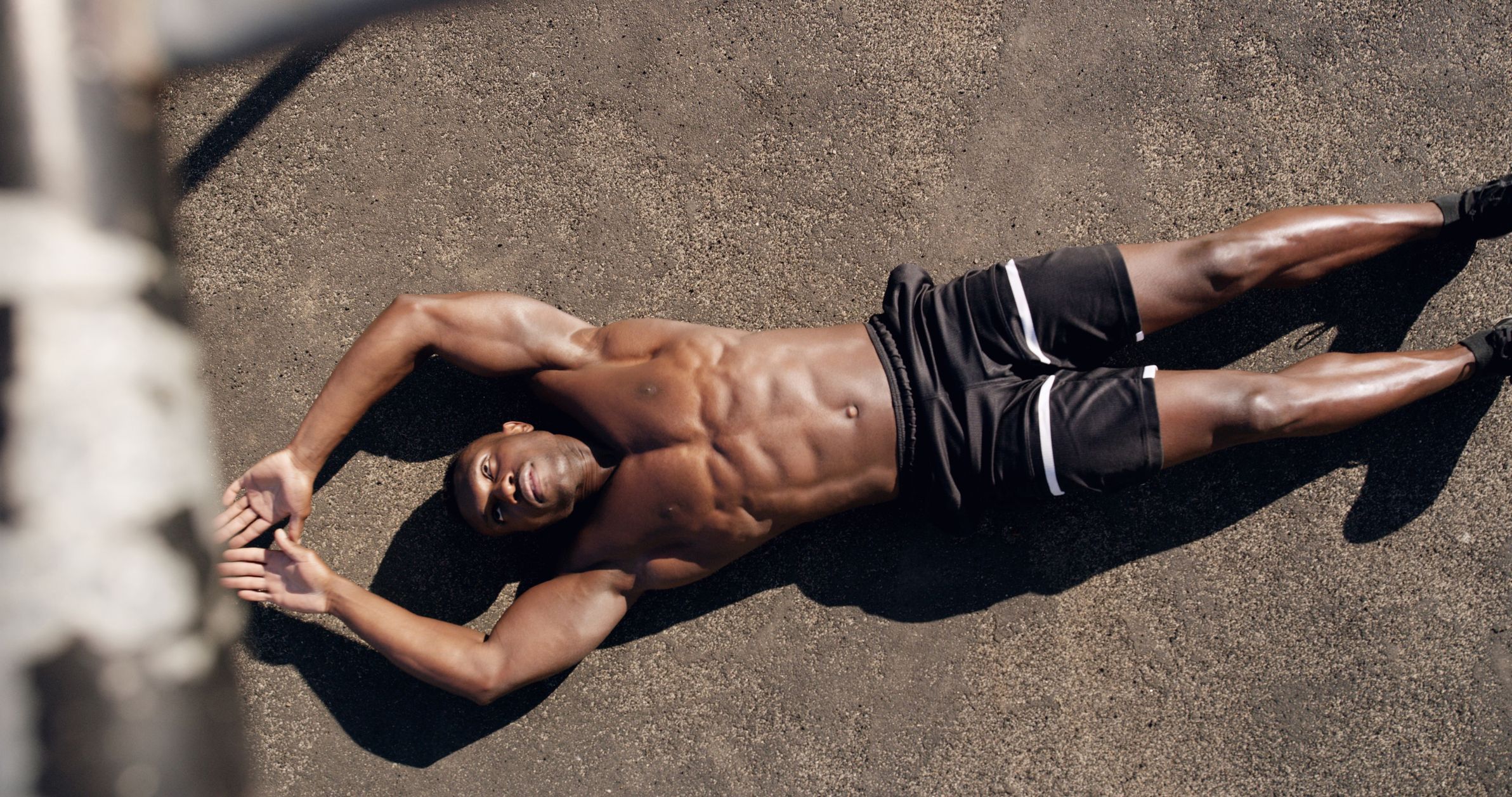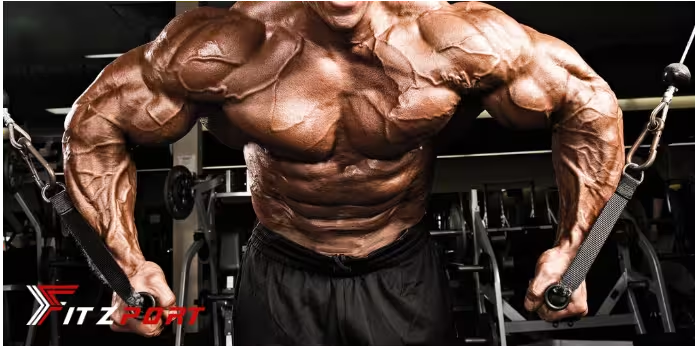The back wins shows! The first look at any person and when you see that upper body tapering to a narrow waist and again flaring up into humongous, solid legs with a beautiful sweep in the quadriceps, you know he’s a fitness freak. Catch up with the best exercises for developing your upper back with dapper looks!!
In men’s physique, the first glimpse that can make a person stand apart is the lats waist ratio.
While preparing for any bodybuilding contest whatsoever achieving a good level of conditioning is meant for the final weeks. It is mainly the structure that matters. That may take years of training.
And then broad shoulders, in general too, give an elegant and imposing look and an advantage aesthetically.
While genetics is the primary factor in deciding how well the back can develop and determine its potential unless and until we do actual work on developing it, the potential will never be reached and never be known. Besides, looking good, a strong back helps in maintaining a good positive, helps the spine strong, and is beneficial even when we need to sit and work for prolonged hours, as that too needs considerable endurance. A person would find it extremely challenging to sit upright for a long period and perform an activity that needs it, say reading, writing, attending a lecture playing chess, at a championship, and so on, besides activities that demand high physical endurance. Hope these exercises will help you in designing a workout schedule, most suitable for you.
1. PULL-UPS/CHIN-UPS
This is one of the best exercises for developing the upper back. It does not need any elaborate gym equipment. Therefore it is truly worthwhile to master this move. It takes a while to get the knack for it and develop the strength for this exercise. Nevertheless, it is one of the best exercises and helps us to handle our own body weight well. Bodyweight exercise makes us more consciously aware of our body too.
- Use a pronated grip; hold the bar wider than shoulder-width apart. Pull your upper body towards the bar.
- Keep your legs stationary throughout the movement. The body must not swing.
- Exhale at the end of the movement of the upward phase (concentric). Inhale while going down in the eccentric phase.
- Pause for a second and retract the scapula before going down. It should be a controlled descent.
- While the latissimus dorsi and the teres major are majorly recruited, the shoulder blades come together at the top of the movement, the rhomboids and middle and lower trapezius also gets recruited.
- Besides that, the bicep brachii, brachioradialis, and brachialis also get strengthened.
Variations
This exercise can be done with a supine grip. In that case, the same guidelines will be followed. Besides the rhomboids, middle and lower positions of the trapezius, teres major, and lattismus dorsi, the pectoralis also contracts. Also, the biceps brachialis, brachioradialisget very intensely worked.
So the chin-up can be included in the arm workout program also. On the arm workout day, you will not be too fatigued as you will be isolating and working the smaller muscles. So it is a good variation to give on the arm day. It also helps in burning calories.
BRINGING THE BAR TO THE CHEST WITH ELBOWS BEHIND
It solicits the upper and central fibres of the latissimus dorsi. This variation is excellent for developing the bulk of the back. Bring the elbows, alongside the body mainly solicits the lateral fibres of the Latissimus dorsi and develops the width of the back.
2. LAT PULL-DOWNS
The lat-pull-down machine guides the movement, as you execute it. Sit and grasp the bar with an overhand (prone) grip. Right from the start, begin to contract the latissimus dorsi.
- Initiate the contraction by bending the shoulder blades.
- Pull the bar down to the sternal notch, Exhale at the end of the movement. Return the bar to the starting position in a controlled manner.
- This exercise develops the bulk of the back.
- The upper and central fibers of the latissimus dorsi
- Middle and lower portion of the trapezius
- Rhomboids, bicep brachii
- To a lesser extent, the pectoralis also contracts.
Tips
- Keep the hands and arms relaxed while contracting the latissimus dorsi.
- Maintain a neutral arch of the spine.
- Keep the head and neck in a neutral position.
- Keep the scapulae retracted
Variations
- Behind the back”, lat pulldown
- Develops the lateral and lowers fibres.
- Teres Major – (which is not recruited in the front lat pulldown)
- Rhomboids and the lower portion of the trapezius come into play when the shoulder blades are pulled together.
- The one thing that is very special about back lat pulldowns is that it develops enough strength to do chin-ups.
3. STRAIGHT ARM LAT PULLDOWN
Stand in front of the machine. Hold the bar, shoulder-width apart with a prone (overhand grip). Keeping the arms extended.Inhale and bring the bar to the thighs.
Exhale at the end of the movement. This exercise strengthens the Lattismus Dorsi and the Teres Major. It also strengthens the long head of the triceps which stabilises the arm trunk hinge. This exercise is particularly useful to improve the crawl stroke in swimmers.
Variations
CLOSE GRIP LAT PULL DOWN – A separate attachment is used on the lat-pull down machine, holding it, as the palms face each other.
4. BENT OVER ROW
With feet firmly on the ground, slightly bent knees, holds the bar with an overhand grip, slightly more than shoulder-width apart. Lean slightly forward, about 45 degrees. Inhale and hold the core in an isometric contraction. Pull the barbell towards the chest retracting the scapula. Return to the initial position in a controlled way and exhale.
- Avoid jerking the torso.
- Do not round the back.
- Keep the head in a neutral position.
This exercise recruits the latissimus dorsi, teres major, posterior deltoids, forearm flexors (biceps brachii, brachialis, brachioradialis). When the shoulder blades contract, the rhomboids, and trapezius contract. The spine also gets an isometric contraction. By changing the grip on the bar (supine or pronated), the width at which it is held, or by training the body at different angles, the back muscles can be recruited from different angles.
5. SEATED ROW
Sit facing the machine, feet rising on the footrest. Hold the handle of the machine. Pull the elbows back, retracting the scapula.The latissimus dorsi, teres major, posterior deltoid, and the forearm flexors that are the same muscles get worked as in the bent over row. While raising the chest, the spinal muscles, (erector spinae) also contract to allow the weight to pull you on the return, helps to develop the flexibility of the back.
Variations
- Middle traps: – An overhand grip isolates the posterior deltoid, and the middle portion of the trapezius.
- Lower Traps: – An underhand grip isolates the inferior portion of the trapezius.
- ONE ARM DUMBBELL ROWS – Since this exercise is also analogous to the rowing move, the same muscles are recruited. Latissimus dorsi, Teres Major, Posterior Deltoid.
At the end of the movement- Trapezius, and rhomboids – Bicep brachii, brachioradialis, and brachialis(forearm flexors) are also used. This is done using a dumbell in one hand. The other arm and knee are rested on a bench to support the back. The upper arm and elbow are lifted with the elbow bent to perform the row. The torso is slightly towards the working side to maximize the contraction.
6. T-BAR ROWS
It is another variation of the rowing move that works all the back muscles. It allows you to focus on the back as you do not have to focus too much effort on the positioning.
The forward lean isolates the abdominal and spinal muscles in isometric contraction.
Variation in T-Bar. If a supinated grip is used, the tricep and the upper portion of the trapezius also get worked to some extent.
Variations
Some machines have abdominal support. In these cases, the isometric contraction of abdominal muscles does not take place because of the support. A pronated grip in this exercise will recruit the bicep brachii and upper trapezius. Very heavyweight in this variation exercise will interfere with breathing and is thus not advisable.
7. DEADLIFTS
Stand facing the barbell, legs slightly apart with abdominal muscles contracted, back slightly arched. Bend the knees, until the thighs are horizontal on the floor. Whether the thighs are exactly horizontal or not, also depends upon the flexibility at the ankles and the physical structure of the person doing it. If they are flexible and a person has short femus and arms, the thighs will be exactly horizontal. If the femur and arms are long then the thighs will be above horizontal.
Grasp the bar with a reverse power grip- one overhand and one underhand grip. This will keep the bar from rolling and allows you to use much heavier weights. Inhale and hold the breath. Contract the abdominal muscles and the lower back. Recruit the gluteus. The gluteus is a large muscle and engaging it consciously will take the load off more fragile and sensitive joints and muscles.
Lift the bar and allow the bar to slide up the shens. When the bar reaches the knees, straighten your torso, while straightening the leg. It is extremely important to keep the back straight and maintain a neutral spine. Exhale at the end of the movement. The deadlift is a power move. Nearly every muscle in the body is recruited in this exercise. It specifically works the quadriceps and gluteal muscles intensely. It is also very effective for the development of the lumbosacral and trapezius muscles.
8. BACK EXTENSION
There are two variations in this exercise lying back extension and seated back extension. This exercise mainly develops the group of paraspinal erectors of the spine.
- Illiocostales
- Longissimus Thoracis
- Spinalis Thoracis
- Splenius
- Semispinalis Capitis
- Quadiatus Lumborum
And to a lesser degree, gluteus maximus and the hamstrings except for the short head of the bicep femoris. Complete flexion of the torso develops the flexibility of the lumbosacral mass like in the yoga posture. (paschimottan aasan). The exercise done on an Incline bench is easier for beginners. Seated back extension also focuses on the lumbosacral mass of the spinal muscles. Gluteus + Hamstring except for the short head of the bicep femori.
INJURIES THAT CAN OCCUR WHILE TRAINING THE BACK
Although it is not the most used muscle when working the back the long head of the triceps brachii gets injured very frequently, when heavy lat pull-downs are done or when weights are added while doing chin-ups. The lattismus dorsi is a powerful fan-shaped muscle that attaches the arm to the rib cage. (The distal tendon of the rib cage attaches to the humerus.)This is the main climbing muscle.
The main function of the tricep brachii, is to extend the forearm. Secondly to bring the arm towards the rib cage. In this way, it complements the action of the latissimus dorsi. Tearing of the long head of the triceps occurs when the muscle is fatigued, most frequently after an improper warm up. It only takes a sudden relaxation of the latissimus dorsi during chin-ups with added weights to immediately shift the tension to the long head of the tricep.
Fortunately, the tear is rarely complete. It occurs close to the insertion on the scapula. One can still perform rowing moves, and movements for triceps such as forearm extensions at a high pulley, with elbows next to the body, provided you are using lightweight. Tearing of the long head of the triceps may also occur during the bench press. In all cases, it is advisable to warm up before beginning exercise. This goes a long way in the prevention of injuries.




29 Comments
this will be a great workout…
Yes indeed! This is an awesome workout!
Very helpful
Nice workout
Haha I can’t sustain the pain of that
Thanks for the info
This is informative!
I see! That is why it’s hard to build my back
Thats amazing
Lets do workout
Workout is life
very informative.
Nice working out
Soon!
Interesting
nice
This is great for the body
Thank you for this article, it is a lot of help.
nice one
nice!
Informative . Thanks!
❤️❤️❤️
I will definitely try this!
yeah its helps a lot!
I really love the workout variety posted here, been doing this exercises for years and i am very satisfied with the results.
It’s good to know. My concern is loose fat, so very helpful.
very helpful to those who wants to stay fit
Great article!
Helpful Article